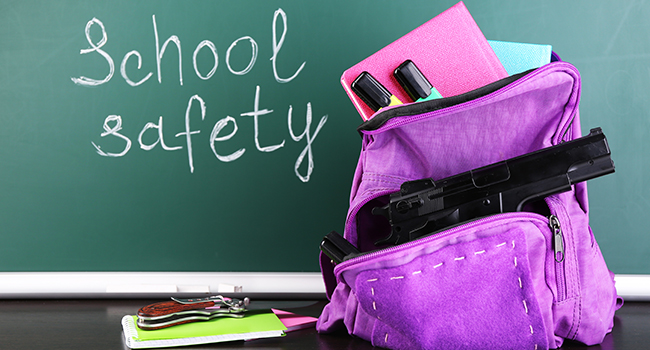
North Carolina School District Reviews Security Upgrades
Nancy Zeiss, Director of Technology for Watauga County Schools, reviewed recent school security upgrades for the Watauga Board of Education.
- By Jessica Davis
- March 19, 2019
At a recent Watauga Board of Education meeting, Nancy Zeiss, Director of Technology for Watauga County Schools, filled the BOE in on recent upgrades made for school safety and security. Among the changes are just under 100 new security cameras and the addition of at least one visitor management system per campus.
When Zeiss approached the BOE in June to present school safety options, only four of the district’s nine schools had a visitor management system; those without had guests sign in via a Google document or other method. Now, each school has at least one Lobby Guard Kiosk, which scans a visitor’s driver’s license, checks it against a database of sex offenders and takes a photo of the visitor.
Due to a high volume of visitors, Zeiss said, Watauga High School and Hardin Park School each have two kiosks. Watauga High School’s second kiosk is for students to use when signing in.
Zeiss provided figures for the average number of visitors each campus has experienced since the Lobby Guard kiosks were implemented. All of the schools combined saw an average of about 5,488 visitors who were not students each month.
“That’s a lot of people in your building that prior to that were just walking around without any badges perhaps or handwritten badges, and no background checks,” Zeiss said. “Now everybody is probably identified and there are background checks on all of those people.”
According to Zeiss, one of WCS’s goals this year was to add consistent camera coverage throughout the district. She said staff had been working to add video surveillance to cover all campus entrances and common areas while using the existing storage.
WCS is about halfway through the process of adding new surveillance cameras, bringing the district’s total to about 300 cameras. Zeiss said the storage of camera footage is rapidly becoming a problem as new cameras are added, with storage space ranging between 10 and 14 days of data.
Zeiss also discussed the Gaggle safety management system, which the district uses to monitor the laptops issued to students. The district works with the service to review student files, Google drives and emails for any alarming content.
Gaggle detects violations in the form of bad language, questionable content and potential safety issues, and notifies administrators accordingly. From the beginning of the school year to March 1, Gaggle recognized a total of 698 violations, including nine potential safety concerns. According to Superintendent Scott Elliott, the administrators would not have known about these safety situations without notification by Gaggle.
About the Author
Jessica Davis is the Associate Content Editor for 1105 Media.